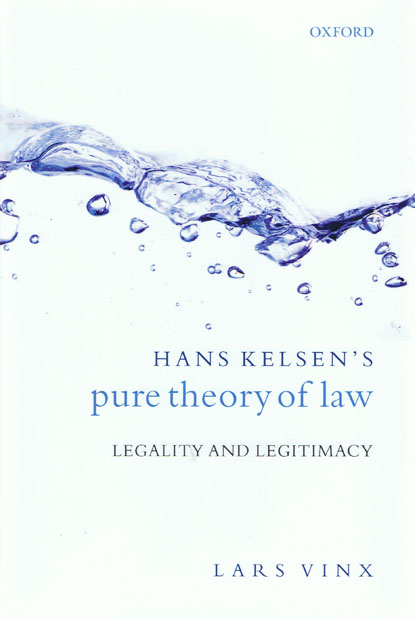
Hans Kelsen is commonly considered to be among the founding fathers of modern legal philosophy. Despite Kelsen's prominence as a legal theorist, his political theory has so far been mostly overlooked. This book argues that Kelsen's legal theory, the Pure Theory of Law , needs to be read in the context of Kelsen's political theory. It offers the first comprehensive interpretation of the Pure Theory that makes systematic use of Kelsen's conception of the rule of law, of his theory of democracy, his defense of constitutional review, and his views on international law.
Once it is read in the context of Kelsen's political works, Kelsen's analysis of legal normativity provides us with a notion of political legitimacy that is distinct from any comprehensive and contestable theory of justice. It shows how members of pluralist societies can reasonably acknowledge the binding nature of law, even where its content does not fully accord with their own substantive views of the requirements of justice, provided it is created in accordance with an ideal of fair arbitration amongst social groups.
This result leads to a fundamental re-evaluation of the Pure Theory of Law . The theory is best understood as an attempt to find a middle ground between natural law and legal positivism. Later positivist legal theorists inspired by Kelsen's work failed to appreciate the political-theoretical context of the Pure Theory and turned to a narrow instrumentalism about the functions of law. The perspective on Kelsen offered in this book aims to reconnect positivist legal thought with normative political theory.